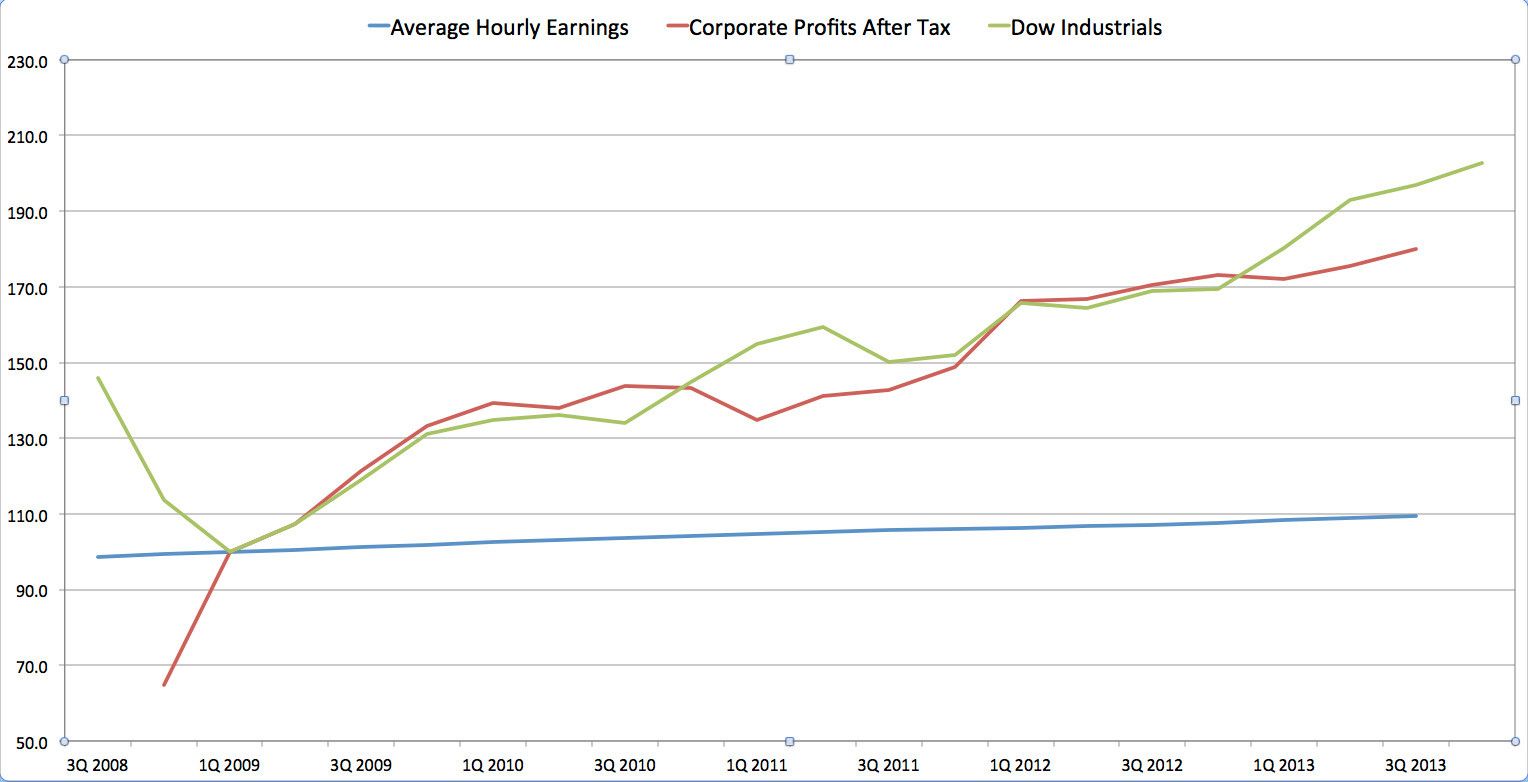“Punting the Pundits” is an Open Thread. It is a selection of editorials and opinions from around the news medium and the internet blogs. The intent is to provide a forum for your reactions and opinions, not just to the opinions presented, but to what ever you find important.
Thanks to ek hornbeck, click on the link and you can access all the past “Punting the Pundits”.
Follow us on Twitter @StarsHollowGzt
New York Times Editorial Board: Not Getting Their Money’s Worth
At first glance, two recent crises to hit the White House – the revelations about unlawful surveillance and the botched health care rollout – have nothing in common. But each is a reminder of the increasing extent to which government work has been contracted out to private-sector companies. Currently, Washington spends about $500 billion a year on private-sector contracts, more than twice the amount in 2000.
It is hard to argue that Americans are getting their money’s worth. [..]
It is legitimate to use contractors when the government does not possess the expertise, especially on specific projects, or for services that are tangential to core government functions. But the current practice of contracting out vast swaths of government work indefinitely – with little or no attempt to develop the needed technical and managerial expertise within the government or to enforce labor standards – has created a bloated federal-contractor sector in which the public good is often subservient to profit.
Eugene Robinson: The ACA: Here to Stay
Now that the fight over Obamacare is history, perhaps everyone can finally focus on making the program work the way it was designed. Or, preferably, better.
The fight is history, you realize. Done. Finito. Yesterday’s news. [..]
The real problem with the ACA, and let’s be honest, is that it doesn’t go far enough. The decision to work within the existing framework of private, for-profit insurance companies meant building a tremendously complicated new system that still doesn’t quite get the job done: Even if all the states were fully participating, only about 30 million of the 48 million uninsured would be covered.
But Obamacare does establish the principle that health care is a right, not a privilege-and that this is true not just for children, the elderly and the poor but for all Americans.
In my days of doing the blog, I have pondered, often, the teleological conundrum of whether an omnipotent god could make a stick big enough to shove up his own ass. When this speculation becomes too difficult, I make myself a lesser case — is it possible for anyone to have a bigger stick up their ass than the one currently residing in the nether quarters of David Brooks? Today, at least, I have the answer to the latter question.
Come on down, Ruth Marcus, famous NSA apologist, weeper for misunderstood torturers, recent Glenn Greenwald heavy-bag workout, and scourge of teenage potty-mouths everywhere, and a woman who makes the late Erma Bombeck read like Rosa Luxembourg and who makes David Brooks sound like Richard Brautigan.
The two of them wrote essentially the same column today. The legalization of recreational marijuana in Colorado is a bad thing because of every failed argument for the stupid “war” on drugs you ever heard. As you might expect, Brooks is far more full of himself than Marcus is — There is more of David Brooks in David Brooks than there is anywhere else in the world. This is a good thing. — and Marcus is far more folksy in her account of her misspent youth.
Dave Johnson: A Moral and Economic Imperative to Extend Unemployment Benefits
Federal unemployment assistance for 1.3 million people who have been unemployed longer than 26 weeks expired last Saturday, after Republicans blocked efforts to extend them. 3.6 million more people will lose these benefits over this year. Restoring these benefits is a moral, economic and political imperative. [..]
So there is a political imperative to push for this because hope and change drives votes. Democrats have to offer hope and change or people won’t see a reason to bother to vote. And “the base” needs to see their elected officials fighting for those things that they feel are important, or they won’t do the things that drive campaigns like giving money, volunteering, going door to door, and otherwise fighting to elect Democrats.
Democrats need to draw clear contrasts for democracy to function and voters to know who to hold accountable.
Joan Walsh: The right’s Benghazi insanity reaches new depths
No amount of facts can convince the right of reality. Here’s how politics, racism and sexism guide their lunacy
Hands down the biggest news story of the 2013 holiday season was the New York Times opus on the 2012 Benghazi attack. The Dec. 28 story debunked every single right-wing conspiracy peddled by Fox News (and also promulgated briefly by CBS News’ “60 Minutes”): the attack was, in fact, heavily motivated by an anti-Islam movie, as the Obama administration claimed; its militia ringleaders were independent of al-Qaida, and there was nothing the administration or Hillary Clinton’s State Department could do to protect the four men who died at the underdefended Benghazi compound. [..]
The truth is, the Times piece was not without criticism of the administration’s efforts in Benghazi. It found that the attack’s leaders had benefited from American weaponry and support while fighting Moammar Gadhafi, and suggests that while the strike on the compound “does not appear to have been meticulously planned, neither was it spontaneous or without warning signs.”
The Benghazi tragedy, David Kirkpatrick wrote, “shows the risks of expecting American aid in a time of desperation to buy durable loyalty, and the difficulty of discerning friends from allies of convenience in a culture shaped by decades of anti-Western sentiment.”
Robert Naiman: Make the 1 Percent Pay for the Iran War
Chuck Schumer, Robert Menendez, and their Senate friends have introduced a bill to blow up President’s Obama’s diplomacy with Iran. If these senators blow up diplomacy, the only thing left on the menu in the restaurant will be war. So now is the perfect time to ask these senators who is going to pay for the war that Senator Schumer, Senator Menendez and their friends are trying to engineer.
Let us urge our economic populist friends in the Senate — people like Ohio Democrat Sherrod Brown and Vermont Independent Bernie Sanders — to call the question by introducing a simple resolution: it is the sense of Congress that if the U.S. goes to war with Iran, the 1 percent should pay the financial cost of the war.
If we could establish the principle that the 1 percent should pay for the war, this would be a win-win for justice. We know well that the 1 percent aren’t paying their fair share of taxes. So, even if making the 1 percent pay the financial cost of wars had no deterrent effect, it would be a win for justice by increasing taxes on the 1 percent.



Recent Comments